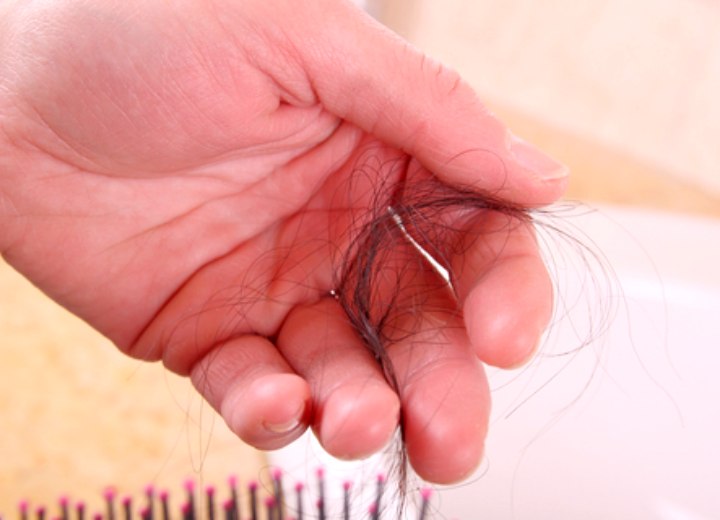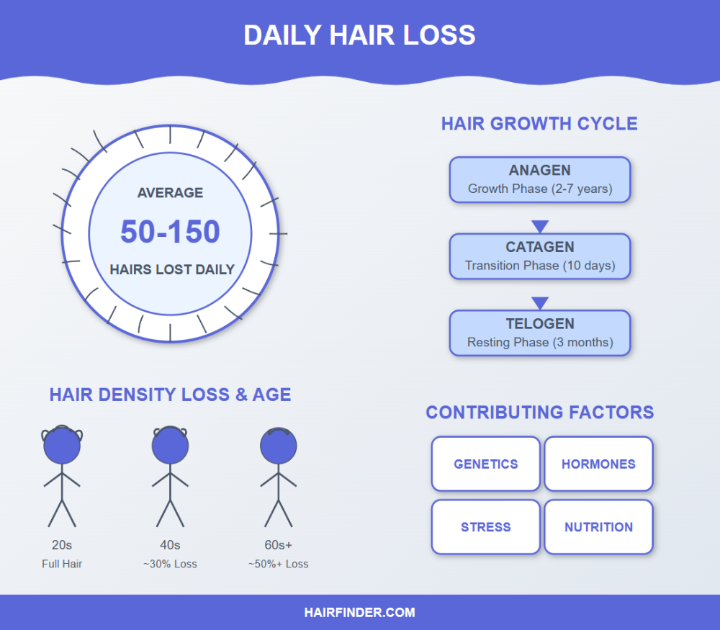How Many Hairs We Lose Per Day

A: It's completely normal to lose hair every day - everyone does. On average, most people shed between 50 and 150 hairs a day as part of the natural hair growth cycle. This daily hair loss is a routine part of how your hair renews itself and usually isn’t a cause for concern.
At any given moment, about 90% of the hair on your scalp is actively growing, while roughly 10% is resting. This balance is what leads to daily shedding.
How Aging Affects Hair Loss
As we age, the way our hair grows and sheds can change significantly. By the time you hit your 40s, about one in three people - regardless of gender - will experience up to a 30% decrease in hair density. For men, male pattern baldness (also known as androgenetic alopecia) affects up to 70% over the course of their lives. For women, it's around 40%.
In women, hair thinning tends to be more diffuse, especially after menopause, when estrogen levels drop. In addition to shedding more hair, the strands themselves can become finer over time, which makes hair appear thinner even if the number of hair follicles doesn’t drop dramatically.

There are many factors beyond aging that can increase hair shedding or trigger more noticeable hair loss. Genetics play a major role in determining your hair's long-term health. Hormonal shifts - like those during pregnancy, after childbirth, or during menopause - can also have a big impact. Medical conditions such as alopecia areata or scalp infections, as well as behaviors like compulsive hair pulling (trichotillomania), can interfere with normal hair growth.
Certain medications - including chemotherapy drugs, blood thinners, antidepressants, and high doses of vitamin A derivatives - may contribute to increased shedding. Deficiencies in key nutrients such as iron, zinc, protein, and certain vitamins (like vitamin D and B-complex vitamins) can also play a role. Stress, whether physical or emotional, can temporarily shock the hair cycle and cause a condition known as telogen effluvium.
Finally, your hair care routine matters too. Tight hairstyles, frequent use of heat tools, harsh chemical treatments, and even environmental factors like sun exposure and smoking can all damage your hair or accelerate hair loss.
While some hair loss is a normal part of aging, supporting your overall health through good nutrition, stress management, and gentle hair care can go a long way in keeping your hair looking full and healthy over the years.
©Hairfinder.com